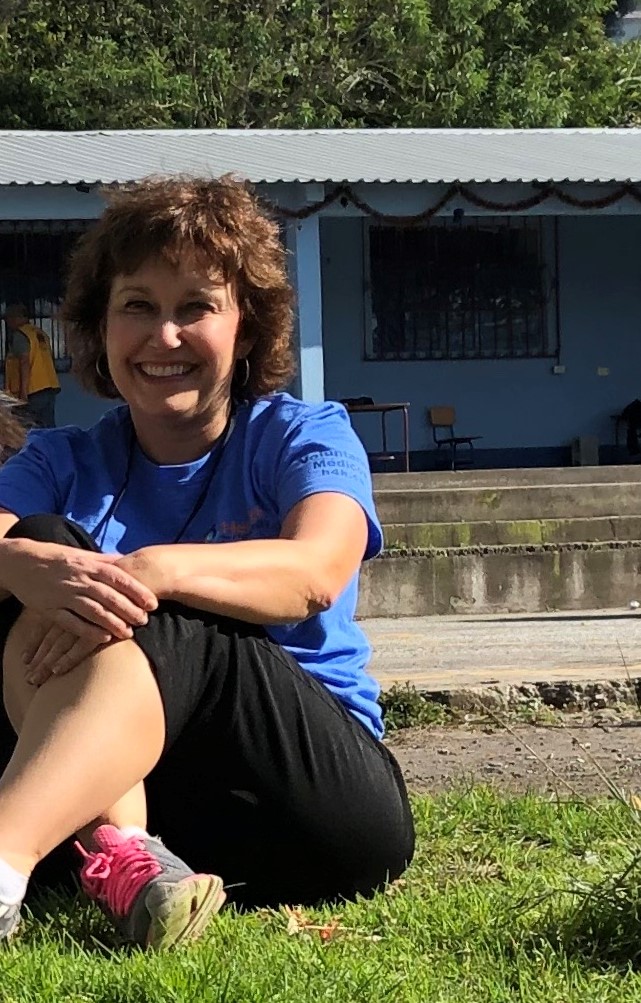Dr. Suze Donaldson discusses Health for Humanity

Whether we do it in big ways or in small ways, Surrey-North Delta members like to give back. For the past four years, Dr. Suze Donaldson has joined a team of over 90 to offer surgical assistance and, more recently, primary care to communities in Guatemala that don’t have access to the health care they need.
Here, Suze talks about her experiences with Health for Humanity in Guatemala, and about how interested members can get involved.
What Is Health For Humanity?
Health for Humanity is a surgical mission that operates in Guatemala in November of every year. This past year, we had 93 volunteers who performed 400 surgeries over the course of three weeks.
For the first time this year, we also sent teams into nearby villages to offer primary care. I was a part of a team who, over the course of seven days, saw over 300 patients.
Volunteers come from all over the world, and from a variety of healthcare backgrounds. Our team this year included anesthetists, surgeons, surgical nurses, recovery room nurses and family physicians. We also have volunteers who perform administrative and organizational duties, which leaves room for significant others who want to come along but who aren’t health care professionals.
As a volunteer with H4H, I have done surgical assisting, and this year I participated in rural primary care clinics.
What Kinds of Health Concerns Do You See in Guatemala?
Our team has performed surgeries such as cleft lip and cleft palate repairs and skin grafting; gynecological surgeries; and orthopedic and general surgeries including hernias and removal of lipomas and breast masses.
In primary care, we see a lot of respiratory issues, because these villagers cook over open fires in their homes. We also see a lot of gastrointestinal ailments like reflux. Beyond these concerns, people come to us with a wide range of issues, including fever, bladder infections, dermatitis, musculoskeletal issues and epilepsy.
What Does a Typical Day In Guatemala Look Like?
When we’re performing surgeries, rounds begin at 7am. Volunteers stay in a hotel all together, so we will often walk together to the hospital, where we eat our breakfasts and lunches. Health for Humanity has a triage day where surgeons meet patients so staff can start to organize the OR slate for the week.
Surgeries start at 7:30 am and continue until we’re finished.
After the surgeries are finished for the day, the volunteers will go out in groups for dinner.
For primary care this year, we traveled by bus with two doctors from the hospital and three 5th year Guatemalan medical students to small communities where villagers had often traveled great distances to see us.
In one village, we were working out of a school, so we used a desk and some chairs and turned a school room into our clinic. Often women with small children, whom they carried wrapped up on their backs, would unwrap the child and set the fabric on the floor - that would be my makeshift “examination table”.
Are There Any Patients Who Stood Out For You?
The first person I saw in primary care was a young, single mother. She had epilepsy, and was experiencing frequent seizures, but was unable to afford the medication she needed. She was afraid that she was going to die and leave her young daughter without anyone to take care of her.
I was able to give her a prescription and I spoke with a member of the local Lion’s Club there (one of the organizations that we partner with), who agreed to make sure that this woman would not have to go without medication again. This visit was extremely rewarding, and was life changing for this patient. It changed her life.
Another patient was an 18 month old boy with a bony abnormality in his upper jaw that left him unable to eat properly or to close his mouth. We operated on him to remove the mass, and when his mother saw him in the recovery room, she fainted. She was overwhelmed and extremely grateful.
Another patient was a young girl with a single father. She had fallen into a fire hands-first, and had developed webs between her fingers. The plastic surgeon was able do skin grafting to improve both the appearance and the functionality of her hands.
It’s hard to describe the feeling when you know you’ve changed somebody’s life.
Why Should Other Physicians Consider Getting Involved?
A big benefit of getting involved with Health for Humanity is working on a team -- everyone supports everyone else. It has also been a great opportunity to review my knowledge of both anatomy and surgical skills: when I started going to Guatemala, I had not done surgical assisting since residency.
But there is also the emotional aspect. The people in Guatemala are so wonderful, and welcoming. Some people we see as a health team have very little money and many of them are labourers. They wait for years to receive medical care and travel distances for assessments and treatment. What we do for them is life-changing and they are just so grateful for the care we provide.
What else do Volunteers Contribute?
Patients do pay some money but some are financially disadvantaged. We help to pay for their surgeries, which are also helped by donations. We also pay for our flights and for our accommodations. H4H also ships a container full of medical supplies over in the summer, which the team sorts and uses during our mission.
How Can I get Involved?
If physicians are interested in becoming involved, they can go to the Health for Humanity website and click on “volunteer”, or they can contact Monica Froh at frohmonica@gmail.com
If they are unable to join us on a trip but would still like to support our mission, they can also make a donation, which would be greatly appreciated and put to good use. There are also fundraisers that take place during the year.



